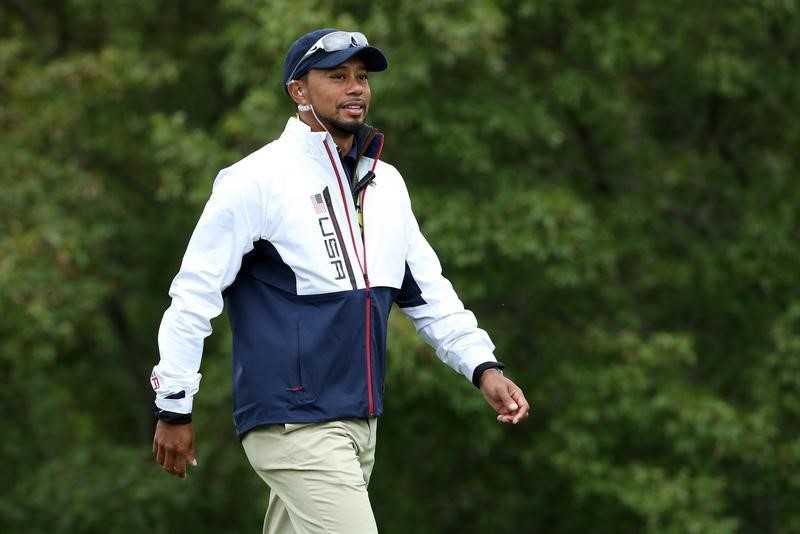By Andrew Both
(Reuters) – As Tiger Woods prepares for his PGA Tour return at this week’s Safeway Open, the big question is whether he will be able to recapture his previous greatness.
One thing is certain: Even if Woods is only a pale shadow of his former self after two major back surgeries, the 40-year-old is certain to be the center of attention wherever he tees it up.
For all the hype about the current batch of top players such as Jason Day, Dustin Johnson, Rory McIlroy and Jordan Spieth, Woods has won nearly double that group’s combined haul of eight major championships, with his career total of 14. “He’s the man, until he says he’s not (competing any more),” Australia’s former world number one Adam Scott told Reuters.
South African Ernie Els, who was in the peak of his career at the same time as Woods, got tired of being beaten by the American but realized he was playing in a special era.
Els said he would love to see Woods competing regularly, though he was wary of expecting too much.
“Let’s be realistic,” the four-times major winner told Reuters. “His winning percentage out here was (close to) 30 percent. That’s just phenomenal.
Englishman Paul Casey felt it would be foolish to discount Woods’ chances of being a dominant force once again.
“From what I’ve seen him do, I would never rule him out from accomplishing anything he wants to accomplish,” said Casey.
Woods has not competed since August 2015 at the Wyndham Classic in Greensboro. The record galleries there provided proof that he is still the player the public most want to watch.
Even as Els, Scott and Casey are reluctant to write off Woods, they all understand the magnitude of the challenge Woods faces after a lengthy absence.
Els, at 46, has a lot of “niggles everywhere” but says that a lack of mental sharpness has mainly been responsible for his own inability to perform to his previous level.
“Physically you’re not where you used to be. You know what you used to do and now, for me, it’s almost more mental,” Els said. “It’s hard to keep that focus for four or five hours for four days in a row.” (Reporting by Andrew Both in Cary, North Carolina; Editing by Mark Lamport-Stokes)
Woods still ‘the man’, his fellow professionals say

By Andrew Both


















